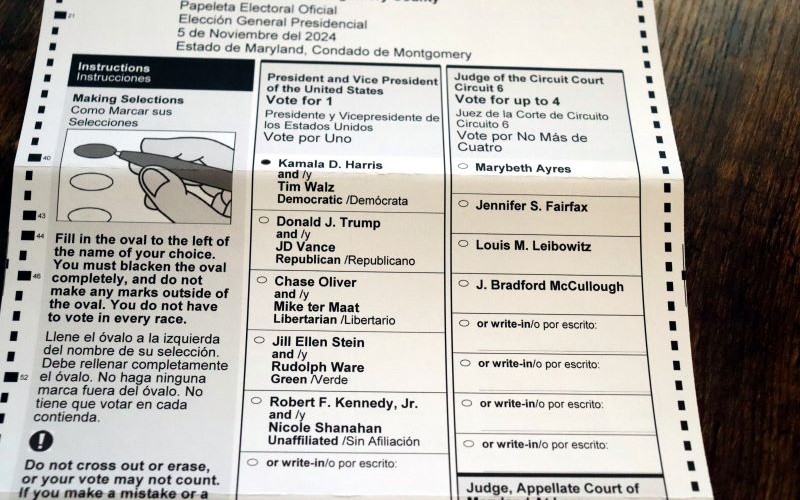US citizens voted to make Republican candidate Donald Trump the 47th President of the United States on Wednesday over his rival Democrat, Kamala Harris.
But a choice between the two personalities was not the only issue that voters had in mind.
Here are some of the other main issues on the ballot for voters.
Abortion rights
A number of states voted on ‘Right to Abortion’ propositions and amendments.
Arizona, Colorado, Maryland, Missouri, Montana, Nebraska, Nevada and New York all passed measures with titles containing the phrase ‘Right to Abortion’.
These measures aim to establish the right for people to receive an abortion as state-wide protections.
Florida and South Dakota both rejected similar abortion proposals.
Florida’s amendment received 57.1% of the vote, but fell short of the 60% threshold needed for the amendment to become law in the state, while South Dakota’s amendment was shot down decisively with a 59.7% ‘no’ vote.
Marijuana legalisation
Nebraska voters overwhelmingly passed an initiative to legalise medical marijuana on Tuesday.
The passing of Initiative 437 means that Nebraskans will be able to possess up to five ounces of cannabis, provided it was prescribed by a medical professional.
Floridians decided against an amendment for the legalisation of marijuana for recreational purposes.
While Florida’s Amendment 3 secured 55.9% of votes, it did not reach the 60% threshold, meaning the drug remains illegal except for medical uses in the state.
Both North Dakota and South Dakota also rejected propositions for legalised recreational marijuana.
Voting law
Voting law was changed in a number of states.
Idaho, Kentucky, Missouri, North Carolina, Oklahoma, South Carolina and Wisconsin all decided to require U.S. citizenship to vote in elections.
While only U.S. citizens are able to vote in elections, these amendments change the language around this rule.
Rather than state constitutions allowing ‘every citizen’ of the U.S. to vote, in these states ‘only a citizen’ of the U.S. will be able to vote.
Iowa also voted to enshrine this kind of citizenship requirement to vote, as well as allowing 17-year olds who would be 18 by the time of the election to vote in primaries.
Minimum wage
Some states voted on minimum wage laws.
Arizona overwhelmingly rejected a proposal that would allow workers to be paid less per hour than the minimum wage.
Missouri voters agreed to establish a new $13.75 per hour minimum wage, mandating a raise to $15 by 2026.
Alaska, California and Massachusetts are all voting on minimum wage increases, but ballots are still coming in and we won’t know the results for a little while.
Immigration and Policing
Arizona voted to allow state and local police stationed on the border to enforce immigration laws, including the arrest of non-citizens who cross the border illegally.
As part of the same proposition, Arizonans also agreed to increase punishments for the sale of fentanyl.
Marriage
California voters established a constitutional right to marry and repealed Proposition 8 – a proposition that defines marriage as between one man and one woman.
Featured image credit: Elvert Barnes from Silver Spring MD, USA





